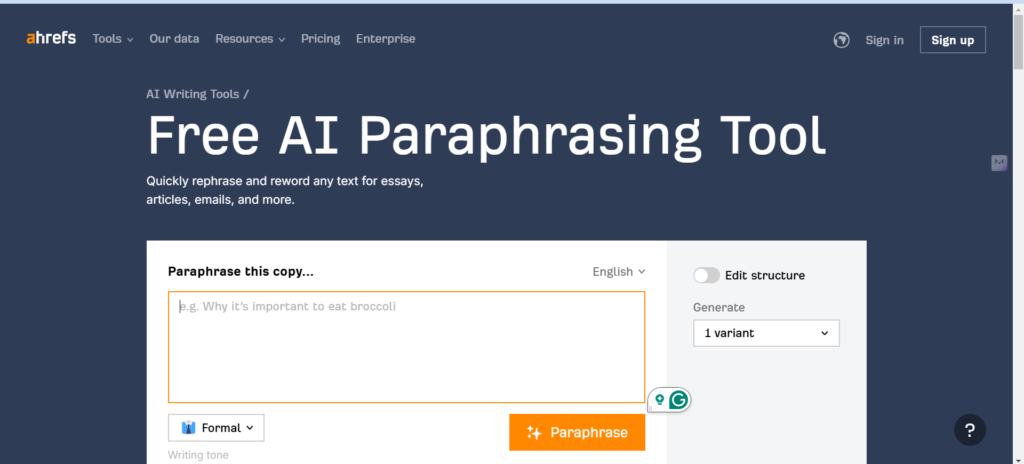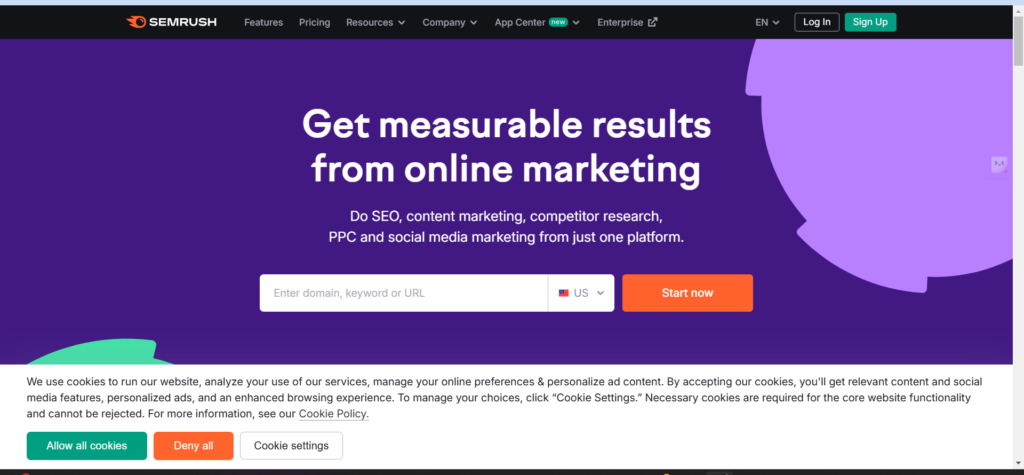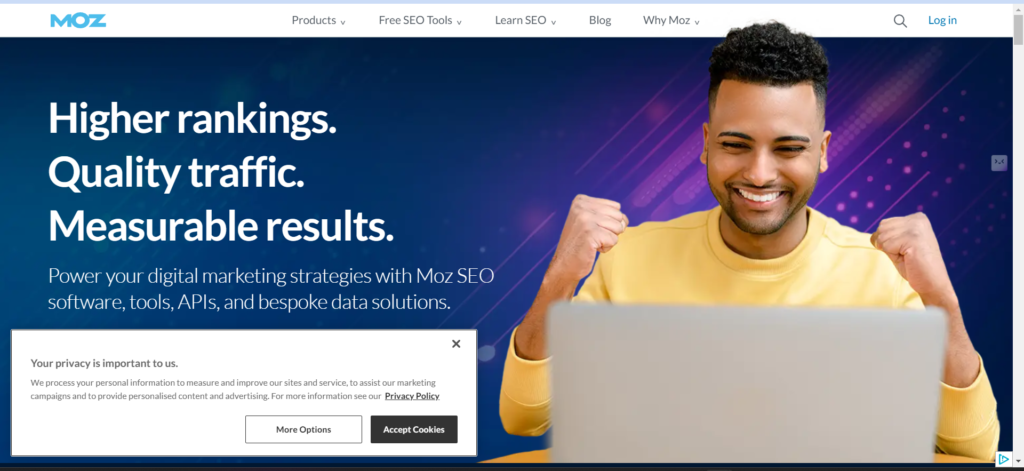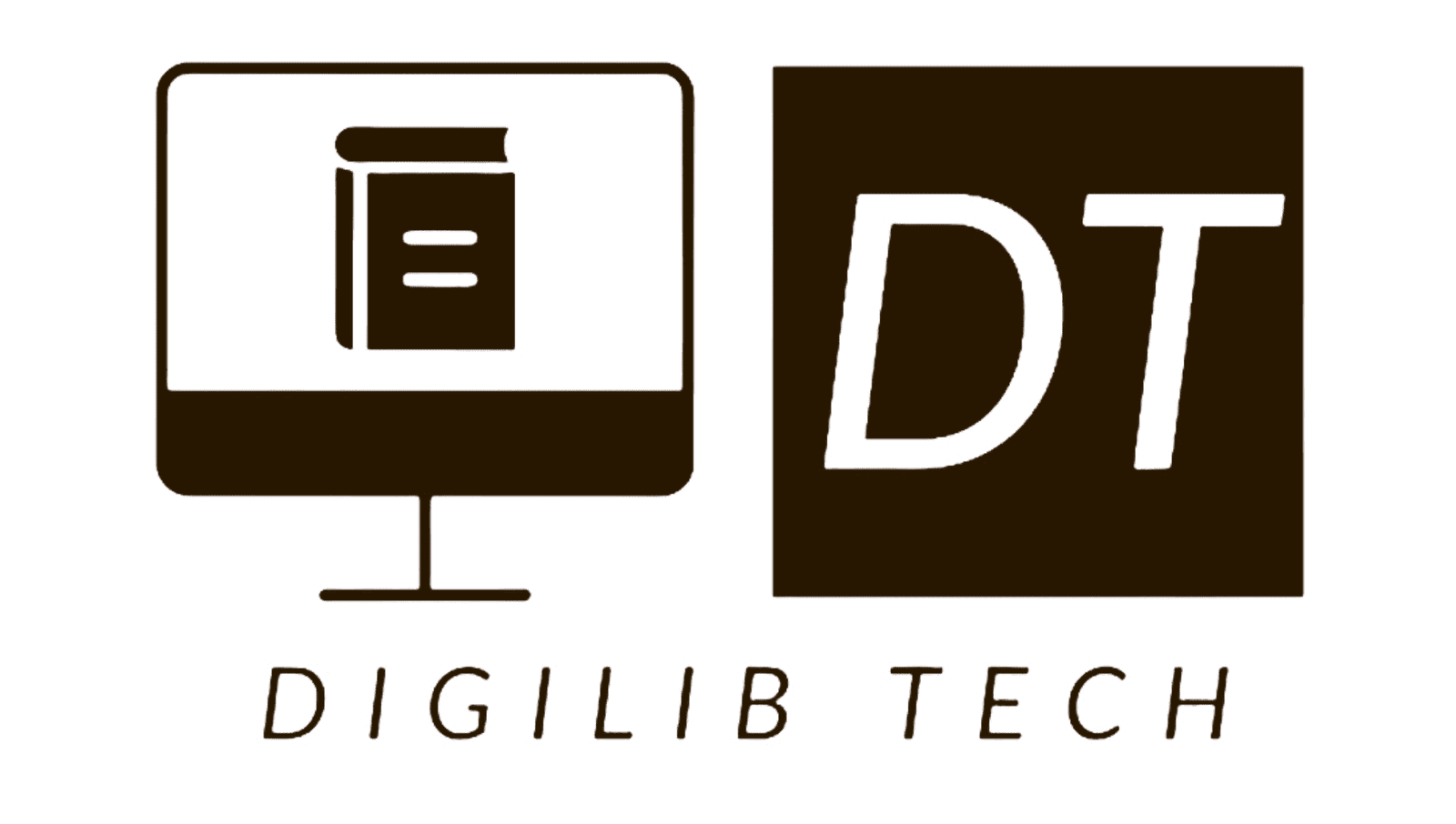SEO Tools Search Engine Optimization (SEO) tools are specialized software designed to assist digital marketers and website owners in enhancing their online visibility and improving search engine rankings. These tools play a crucial role in the digital marketing landscape by providing insights, analytics, and recommendations that can significantly influence a website’s performance on search engines like Google, Bing, and Yahoo. Effective utilization of SEO tools can lead to increased organic traffic, which is essential for achieving business goals and driving conversions.

The importance of these tools cannot be overstated. In the competitive online environment, understanding how search engines rank content and how users interact with that content is vital for a successful digital marketing strategy. SEO tools help identify keywords, analyze competitors, track website performance, and uncover opportunities for content improvement. By leveraging these insights, marketers can develop targeted strategies that align with user intent and preferences, effectively increasing the relevance of their content in search results.
Various types of SEO tools are available to cater to different aspects of optimization. Keyword research tools help identify high-potential keywords that can be targeted for engagement. On-page SEO tools assess individual web pages for optimization issues such as meta tags, headers, and internal linking. Competitor analysis tools enable businesses to monitor their rivals’ strategies and make informed decisions. Additionally, link-building tools assist in managing and acquiring backlinks, which are essential for establishing authority and trustworthiness in the eyes of search engines.
In essence, SEO tools provide the needed support to help marketers navigate the complexities of search engine algorithms and consumer behavior, ultimately maximizing online presence and effectiveness in 2023 and beyond.
Ahrefs: The All-in-One Toolset
Ahrefs is undeniably one of the leading SEO tools available in 2023, renowned for its comprehensive set of features that cater to various aspects of search engine optimization. Its powerful capabilities include keyword research, backlink analysis, and content optimization, making it an essential tool for both beginner and seasoned SEO professionals. The intuitive design of the Ahrefs platform allows users to easily navigate through its extensive functionalities, enabling them to efficiently manage their online presence.

One of the standout features of Ahrefs is its keyword research tool, which provides in-depth insights about keyword volume, keyword difficulty, and associated search intent. This enables users to identify the most relevant and impactful keywords for their specific niche. Furthermore, with a robust database, Ahrefs ensures that the keyword data is current and reliable, allowing businesses to tailor their content strategies effectively.
Another critical aspect of Ahrefs is its backlink analysis capability. Understanding your website’s backlink profile is vital for improving search rankings, and Ahrefs excels in this area by offering comprehensive insights into backlinks pointing to your site and those of your competitors. Users can discover high-authority sites for potential link-building opportunities and monitor their backlink growth over time, enhancing their overall SEO strategy.
Ahrefs also provides tools for content optimization, helping users evaluate their existing content’s performance and identify areas for improvement. By analyzing competing content, users can refine their approach to ensure higher engagement and relevance. Successful use cases of Ahrefs often highlight its effectiveness in refining content strategies and enhancing the visibility of websites across search engines.
To use Ahrefs efficiently, new users should familiarize themselves with its tutorials and resources. Regular tracking of keyword rankings and competitor analysis can significantly contribute to refining and optimizing an SEO strategy over time.
SEMrush: A Comprehensive SEO Solution
SEMrush stands as a premier SEO tool that offers a plethora of features aimed at enhancing online visibility and optimizing digital marketing strategies. It is renowned for its robust capabilities in competitor analysis, keyword research, and conducting thorough technical SEO audits. By utilizing SEMrush, businesses can gain critical insights into the digital landscape, thus enabling them to formulate effective strategies for growth.

One of the standout features of SEMrush is its competitor analysis functionality. This allows users to scrutinize the strategies employed by their competitors, providing essential information on traffic sources, targeted keywords, and backlink profiles. By understanding these metrics, businesses can identify gaps in their own strategies and capitalize on their competitors’ weaknesses. This insight not only aids in tactical decision-making but also fosters a competitive edge in the market.
Moreover, SEMrush excels in keyword research, a fundamental aspect of any successful SEO campaign. Users can discover high-potential keywords tailored to their specific niches, along with search volume data and difficulty ratings. This information enables marketers to prioritize their efforts on keywords that are most likely to yield significant results, thus driving targeted traffic and improving search rankings. Additionally, SEMrush’s keyword tracking feature allows for ongoing monitoring of keyword performance, ensuring that strategies can be adjusted as needed.
Technical SEO audits are another critical aspect where SEMrush shines. The tool identifies potential issues affecting website performance, such as broken links, slow loading speeds, and improper tags. By rectifying these technical flaws, users can enhance their site’s usability and performance, ultimately leading to better search engine rankings. Overall, leveraging the extensive features of SEMrush can profoundly impact a business’s online presence, making it a vital resource for anyone looking to enhance their SEO strategy in 2023.
Moz: The Popular SEO Platform
Moz is a well-regarded SEO platform that has garnered admiration for its comprehensive suite of tools designed to enhance various aspects of search engine optimization. Established in 2004, it has evolved into a pivotal resource for digital marketers and SEO professionals looking to boost their online presence. Among its numerous features, Moz stands out particularly in the areas of keyword research, link building, and on-page optimization, which are critical for any successful SEO strategy.

One of Moz’s trademark features is its keyword research tool, which enables users to discover high-potential keywords that can drive significant organic traffic. By analyzing not only search volume but also the difficulty of ranking for specific terms, Moz equips users with the insights needed to select the most effective keywords. This strategic approach ensures that businesses can target the right audience, making their content more relevant and discoverable.
Another essential aspect of Moz is its link-building capabilities. Backlinks are crucial for establishing authority and improving search rankings. Moz’s Link Explorer allows users to investigate their own site’s backlinks and that of competitors, offering valuable insights into link profiles and potential link-building opportunities. This feature, coupled with Moz’s unique Domain Authority metric, provides a clear understanding of a site’s ranking potential compared to competitors, serving as an essential benchmarking tool in an SEO assessment.
For maximizing the benefits of Moz in your SEO strategy, it is advisable to integrate its recommendations into regular practice. Regularly monitor keyword performance, keep track of your site’s Domain Authority, and utilize the on-page optimization suggestions offered by the platform. By leveraging Moz’s suite of tools in a consistent and methodical manner, users can significantly enhance their website’s visibility and performance in search engine results.
Google Search Console: Your Free Ally
Google Search Console is an indispensable tool for website owners and SEO professionals alike, offering a free solution to monitor site traffic and performance. This platform plays a crucial role in enhancing online presence by providing insights into how a website interacts with Google’s search engine. As it allows users to track search queries, analyze impressions, clicks, and positions, it empowers businesses to make informed decisions that promote their digital footprint.
One of the primary features of Google Search Console is the ability to identify and rectify technical issues that may hinder a website’s performance. Users can receive alerts regarding critical index coverage problems, mobile usability issues, or security concerns, enabling them to address these matters promptly. For instance, a website may experience a drop in traffic due to a misconfigured setting or a penalty from Google. By utilizing this tool, owners can pinpoint these issues and implement appropriate solutions, ensuring their site is optimized for search engine visibility.
Moreover, Google Search Console provides data on user engagement, such as the average time users spend on a page and the bounce rate. This information is vital for understanding visitor behavior and refining SEO strategies accordingly. By analyzing specific keywords that drive traffic, users can enhance their content relevance and ultimately improve their website’s ranking. Real-life applications of Google Search Console underscore its importance; for example, many businesses have successfully improved their click-through rates by adjusting title tags and meta descriptions based on data insights from this tool.
In conclusion, Google Search Console offers a robust platform for optimizing website performance and enhancing search visibility. By leveraging its features, users can effectively monitor their online presence and implement strategies that align with evolving SEO best practices.
Hootsuite Insights: Tracking Online Reputation
In the realm of digital marketing, managing an online presence is crucial for businesses aiming to succeed in a competitive environment. One of the leading tools that aid in this endeavor is Hootsuite Insights, a powerful social media analytics platform. This tool specializes in tracking brand mentions across various online channels, which is essential for understanding public perception and sentiment towards a brand. With the proliferation of social media, maintaining a positive online reputation has never been more important, and Hootsuite Insights offers comprehensive features to facilitate this process.
The functionality of Hootsuite Insights allows users to monitor conversations and comments related to their brand in real-time. By analyzing social signals, businesses can gauge how their audience perceives them, which plays a significant role in attracting new customers and retaining existing ones. The platform compiles data from various social media platforms, providing a holistic view of how a brand is discussed across the internet. This invaluable insight enables companies to address any negative feedback promptly and refine their marketing strategies accordingly.
Moreover, social signals are increasingly recognized as a contributing factor in search engine optimization (SEO). Search engines are inclined to prioritize brands that have a positive online reputation, as this can enhance credibility and trustworthiness. By leveraging Hootsuite Insights, businesses can not only manage their online reputation but also potentially improve their SEO rankings through effective engagement and brand monitoring. This alignment of social media strategy and SEO tactics represents a significant advantage in today’s digital landscape, positioning brands for sustained growth and visibility.
Keyword Research Tools: Finding the Right Keywords
Keyword research is a foundational aspect of search engine optimization (SEO), as it enables content creators and marketers to identify the terms and phrases that potential customers use when searching online. By understanding these keywords, businesses can tailor their content, enhancing visibility and relevance to their target audience. A thorough keyword strategy not only improves search rankings but also aids in attracting organic traffic, thereby increasing engagement and conversions.
To facilitate effective keyword research, numerous tools are available, each offering unique features to assist users in finding high-impact keywords. Popular tools like Google Keyword Planner allow individuals to explore search volume and discover related keywords, providing insights based on actual search queries. This data is invaluable for determining which keywords hold the most potential within a specific market. Another robust option is Ahrefs, which offers comprehensive keyword research capabilities, including competition analysis, keyword difficulty scores, and click-through rates, enabling users to make informed decisions based on competitive metrics.
Moreover, SEMrush stands out as an all-inclusive platform that provides keyword suggestions, competitor analysis, and trends. Users can identify keywords driving traffic to competitors’ websites and thus develop strategies to outmaneuver their competition. Additionally, Ubersuggest offers an accessible interface for finding long-tail keywords, which can often attract niche audiences and high-intent traffic. Leveraging such tools will enhance an SEO strategy significantly by not only finding keywords but also analyzing their potential impact.
In conclusion, integrating effective keyword research tools is essential for an impactful SEO strategy in 2023. By understanding keyword competition and search volumes, businesses can make data-driven decisions, ensuring their online presence is maximized. Exploring these tools ensures that content remains relevant, discoverable, and geared towards driving organic traffic effectively.
Link Building Tools: Enhancing Authority
Link building remains a critical component in the landscape of search engine optimization (SEO), directly correlating with a website’s authority and visibility in search engine results. By acquiring high-quality backlinks, a website can signal its credibility to search engines, significantly improving its rankings. The process of link building involves strategic outreach and analysis, making the use of specialized tools essential for maximizing effectiveness in this area.
Several tools are available that assist in various facets of link building, including analysis, outreach, and management. One popular option is Ahrefs, renowned for its comprehensive backlink analysis and competitive research features. It enables users to scrutinize their link profile, discover new linking opportunities, and monitor the link-building strategies of competitors. Another widely utilized tool is Moz, which offers link metrics such as Domain Authority and Page Authority, helping to gauge the strength of potential link partners.
Additionally, outreach-focused tools like BuzzStream streamline the process of reaching out to webmasters and bloggers for link acquisition. Its user-friendly interface allows marketers to manage outreach campaigns efficiently, tracking interactions and responses all in one place. Furthermore, tools like SEMrush provide backlink audits that evaluate the quality of existing backlinks, thus helping identify areas for improvement.
When implementing link-building strategies, certain best practices should be adhered to. This includes prioritizing quality over quantity; focusing on acquiring links from reputable and relevant sites rather than attempting to gather a vast number of low-quality links. Moreover, building relationships within your niche can facilitate more sustainable and effective link-building efforts. By harnessing these tools and following established practices, organizations can enhance their web authority and improve their overall online presence.
Technical SEO Tools: Ensuring Optimal Performance
Technical SEO forms the backbone of effective website performance, encompassing crucial aspects such as website speed, mobile-friendliness, and crawlability. These factors significantly influence search engine rankings and user experience, making the selection of appropriate SEO tools vital for maintaining a competitive edge in 2023.
Website speed is a critical ranking factor, as slower loading times can lead to higher bounce rates and reduced user satisfaction. Tools like Google PageSpeed Insights, GTmetrix, and Pingdom offer invaluable insights into page load times and provide actionable recommendations. By addressing issues like image optimization, leveraging browser caching, and utilizing content delivery networks (CDNs), website owners can enhance loading speeds, ultimately leading to improved search engine rankings.
Mobile-friendliness is another paramount consideration in technical SEO. As more users access websites via mobile devices, search engines have shifted their algorithms to prioritize mobile-optimized sites. Google’s Mobile-Friendly Test and the search console report on mobile usability are essential tools that help identify issues users might face on mobile devices. Implementing a responsive design that provides a seamless experience across devices not only benefits user engagement but also enhances visibility in search results.
Crawlability is vital for search engines to index website content properly. Tools like Screaming Frog and Sitebulb allow webmasters to perform audits that identify crawl errors, broken links, and duplicate content. By regularly monitoring and optimizing for crawlability, websites can ensure that search engines efficiently index their pages, paving the way for better rankings.
In conclusion, utilizing the right technical SEO tools is essential for optimizing website performance. By focusing on website speed, mobile-friendliness, and crawlability, site owners can improve their search rankings and provide a better user experience, creating a solid foundation for long-term online success.
In the increasingly competitive landscape of digital marketing, selecting the right tools for search engine optimization is paramount. The best SEO tools for 2025 encompass a diverse range of functionalities, from keyword research to performance tracking, enabling businesses and individuals to optimize their online presence effectively. As explored throughout this blog post, integrating multiple tools into your SEO strategy can yield synergistic benefits, enhancing overall effectiveness and efficiency.
It is essential to assess your unique needs carefully. Different tools cater to various aspects of SEO, such as on-page optimization, backlink analysis, and content performance. Therefore, understanding your goals—whether it’s increasing website traffic, improving search rankings, or enhancing user engagement—will guide your choice of tools. Tools like SEMrush, Ahrefs, and Moz, among others, offer comprehensive features that can help streamline these processes and support your strategic approach to online marketing.
Moreover, experimenting with various combinations of these SEO tools can yield valuable insights and a more robust understanding of how they interact with one another. A holistic SEO strategy often requires flexibility and adaptability; thus, continuously refining your toolkit based on what works best for your specific situation is crucial. By keeping abreast of technological advancements and adapting your strategies accordingly, you can maximize the potential of your online presence.
Ultimately, the right selection of SEO tools can serve as a catalyst for achieving your desired outcomes in the digital sphere. Prioritize experimentation and assessment to find the optimal balance of tools that aligns with your objectives, ensuring a strong footing in the ever-evolving world of search engine optimization.
